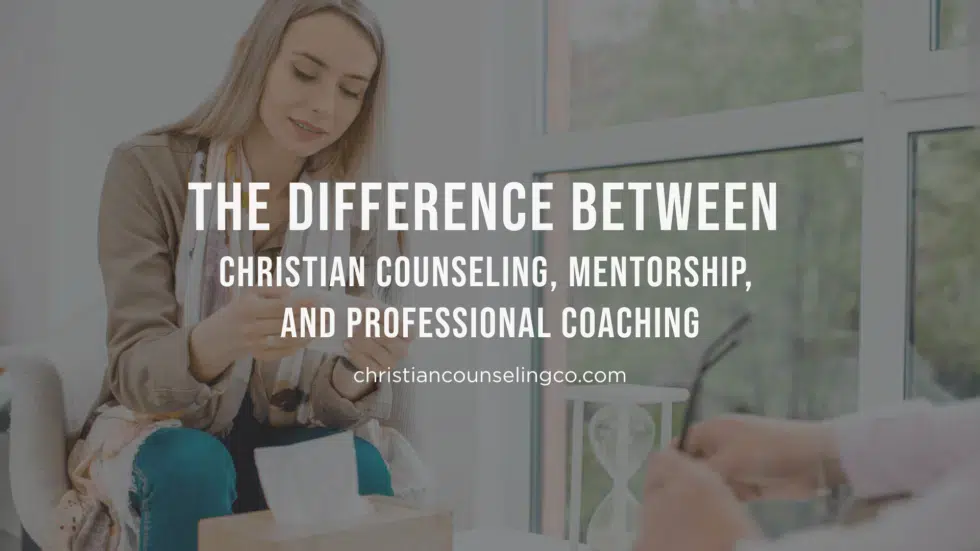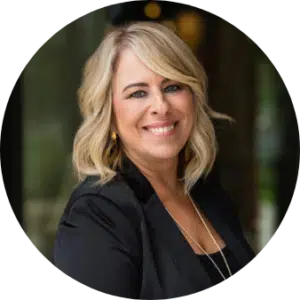Where do we go for advice, wise counsel, and insight when we have big decisions to make? When we’re spinning inside our heads? When we’re stuck in some sort of mind- numbing analysis paralysis? Making decisions can be extremely tough, and there are many resources you can turn to like a mentor, life coach, or a Christian counselor. But how do you know which one to choose?
Table of Contents:
–What’s the difference between mentors, coaching, and Christian counseling?
Adulting is Hard
My mother always told me, “Look both ways before crossing the street.” Life was simpler back then. The most complicated decisions we faced were crossing busy streets, or choosing between the cheeseburger or the chicken nuggets in the Happy Meal. No matter what the high-pressure decision was, we had people around us to give us advice, give us a little direction, or maybe even a carefully crafted ultimatum like “5 seconds to decide or you’re eating the cheeseburger!”
Now as adults, we face bigger crossroads. We find ourselves on the curb of life, not sure when we should take a step. Maybe you need a career change and are stuck deciding if you want to build computers in Silicon Valley or build houses in Uganda. You might be going through a life transition, single for the first time in decades and unsure what life looks like now. You may even be on the threshold of marriage or taking a relationship to a deeper level, but have a few bags you’d like to dump before making the jump.
What’s the difference between christian counseling, mentorship, and professional coaching?
Benefits of mentorship
Many people already have a mentor or are someone’s mentor. But for a lot of us, mentoring sounds a bit intimidating, or an overly-formal relationship. Yet on the continuum of mentoring to counseling, mentoring is the most informal. You can find a mentor at any time in your life and for any amount of time. Mentors are people, often friends, who are often on the same path you are, just a bit, (or even quite a bit) further down the road. Usually, mentor relationships have no strings attached, no fees, or contracts.
Your mentor could be a mom you met through your MOPS group who can offer support. Or a successful entrepreneur who has sage advice as you begin launching your own business. A teacher or professor who you really respected or resonated with, or a professional in your field who spoke into your career.
If you need a friendship-type relationship to share some advice and wisdom, who has walked a similar path, this may be the perfect match for you. Mentors are best found through friends, family, and good old-fashioned networking.
benefits of professional coaching
Coaching takes a mentor relationship to the next level. These are formal relationships, guided by best practices, and many coaches carry certifications from formal training programs or national membership organizations. They can be contract and fee-based, but are not licensed or governed by a regulatory body. They typically help you guide future decisions or create life plans with personal and professional goals.
If you have an idea of your personal and professional objectives, but not a clear path for reaching them, or you’re feeling stuck and not sure which direction to take your life next, coaching could be a great fit for you. Coaching often has a set of outcomes, goals, or results, and involves setting expectations and establishing accountability to reach these milestones. Coaches are partners that help you set a life plan and execute it.
benefits of therapy or christian counseling
three questions to consider as you choose between mentorship, coaching, and counseling:
1. Do I need informal advice? Consider a Mentor! Someone who can use their experience to speak into your life, give you advice, challenge you, and be there for you informally (just a phone call, text or email away). Seek out personal, professional or even spiritual mentors by talking with friends, family, and by resourcing your local church. Consider joining professional organizations and networking, or reaching out to a business leader in your community or at your organization.
2. Do I need direction? Consider Coaching! Are you feeling an itch to make a big personal or professional change, but aren’t quite sure what that “itch” might be? Maybe you’re tired of grinding away at a job that isn’t fulfilling, or maybe you’re ready to finally launch that dream business. Perhaps you’re at home raising your little ones but want to begin something on the side. A coach may be the perfect match to help clarify your dreams and calling, and then define a plan to help you get there.
3. Do I need deeper clarity? Consider Counseling! If you are feeling stuck, confused, emotional or emotionally detached, maybe lost sight of your passion or feel blocked and unable to engage what life may have next, a professional counselor may be the answer. Counselors can help make powerful connections between your history and current reality, and can help increase your insight and self-awareness. Counseling can clear out mental and emotional clutter that might be impairing your understanding of yourself and what you are capable of creating for your life. And most importantly, counseling can help you understand and regulate your emotions, reduce symptoms of anxiety and depression, and create a healthy mindset for making those life decisions you’re facing.
My mother always told me to look both ways before crossing that street, but she also imparted this wisdom: ”and before you step off the curb, grab a hand and don’t cross it alone.”
Author: Jo Martin
Jo is one of our talented Christian counselors who loves to work with individual women, and young adults navigating life transitions.
If you’re interested in counseling with Jo or another one of our other amazing counselors, click here to view our line-up.







